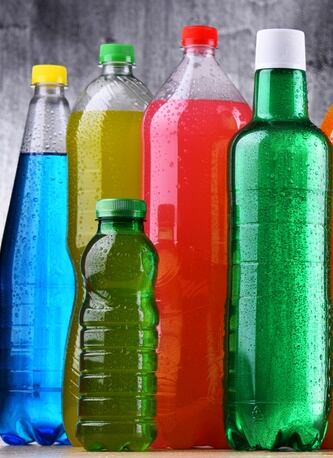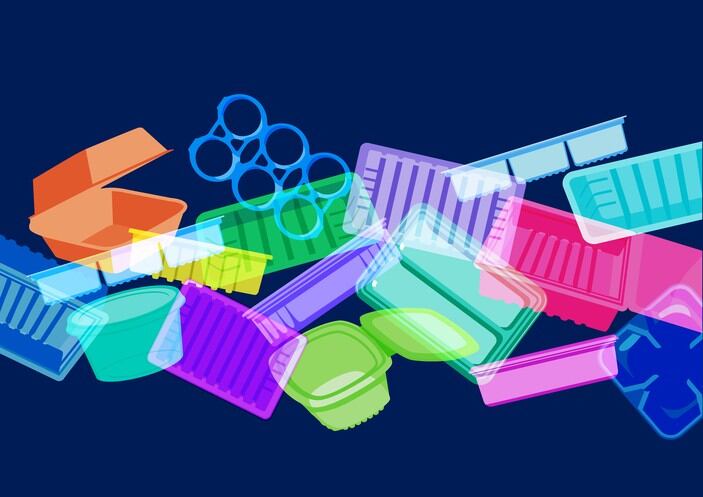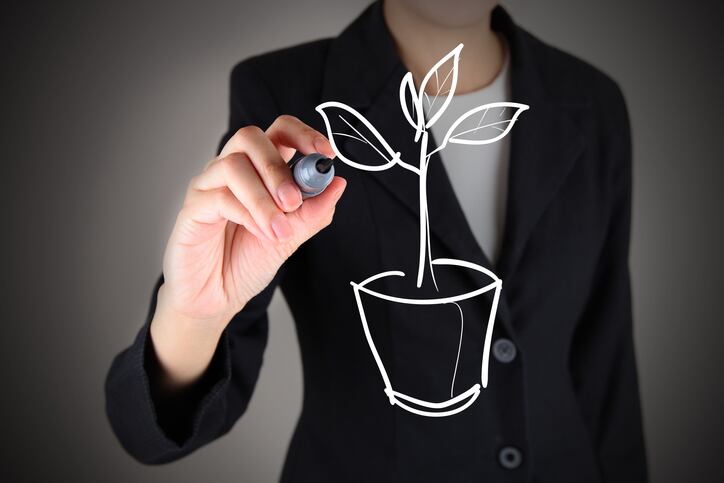The UK plans to introduce ‘world-leading’ tax on plastic packaging in April 2022, applying to all single-use plastic packaging that doesn’t include at least 30% recycled content. It has now opened plans up to consultation to determine issues such as what items the tax would be applied to, and the threshold of recycled content.
Meanwhile, plans for a Deposit Return Scheme for cans and bottles have also been opened up to consultation.
What would a plastic packaging tax look like?
Over two million tonnes of plastic packaging is used in the UK each year: and the vast majority of plastic packaging in the UK is currently made from new, rather than recycled, plastic.
The government believes, however, that with the right incentives there is scope to increase the use of recycled content.
The key aim of the plastic packaging tax, therefore, is to encourage producers to use more recycled plastic in packaging. This would result in less plastic waste going to landfill or being incinerated, and would also reduce energy use (‘using new plastic typically has greater environmental impact: it requires unnecessary resource extraction and processing, with higher energy use and emissions than using recycled material’.)
“The government wants to encourage all liable manufacturers who could use more recycled material to do so, in order to reduce use of new materials and so maximise the environmental benefit,” says the government.
“This means making use of recycled plastic from all sources, including emerging technologies, whilst minimising the risks of unintended consequences for business and the environment.”
Ambitious - and achievable?
The government acknowledges that a plastic packaging tax needs to be both ambitious and realistic, proposing that a tax would apply to packaging with less than 30% recycled plastic.
“The government wants to set the threshold of this world-leading tax at an ambitious level, to reflect the pressing need to act on this issue,” it observes.
“The threshold must also be achievable in the foreseeable future for many types of plastic packaging, or large parts of the market will be discouraged from investing in solutions to meet the target.”
A key issue in using recycled plastic is the cost: and the government hopes that a tax could help address this.
“Our call for evidence on single-use plastic waste last year highlighted that recycled plastic is often more expensive than new plastic, despite its lower environmental impacts.
"The Government wants to shift the economic incentives involved in the production of more sustainable plastic packaging, encouraging greater use of recycled plastic and helping to reduce plastic waste.”
The tax will complement reformed Packaging Producer Responsibility regulations, which are being discussed in a parallel consultation. These reforms are intended to encourage businesses to design and use plastic packaging that is easier to recycle, and discourage them from creating packaging which is difficult to recycle.
Tax would include bio and compostable plastics
The definition of ‘plastic’ would be drawn from Article 3 of the draft Directive on Single-Use Plastics: "'plastic' means a material consisting of a polymer within the meaning of Article 3(5) of Regulation (EC) No 1907/2006, to which additives or other substances may have been added, and which can function as a main structural component of final products, with the exception of natural polymers that have not been chemically modified."
The government’s definition of plastic would include bio-based plastic and plastics that are compostable, biodegradable or oxo-degradable, as well as fossil-based plastic.
“Although the government recognises there is an important role for bio-based, compostable and biodegradable plastic in certain applications, the objective of this tax is to shift demand towards the use of recycled material, and therefore the government’s initial proposal is that the tax will not distinguish between different types of plastic or different ways of design for disposal," it says. "However, we would welcome views on this.”
Plastic bottles, trays, pots and lids are all likely to be included in the tax, as are component parts such as labels and caps. While different components may be supplied separately by different manufacturers, they would all be taxed at the point of production. “Manufacturers at this point in the supply chain are closer to the point at which recycled content is added, and have a clear line of accountability to the amount of recycled content in a product”.
Deposit Return Scheme for cans and bottles

The government has also announced plans to introduce a Deposit Return Scheme to tackle plastic waste. “This could drive up the recycling of an estimated three billion plastic bottles which are currently incinerated, sent to landfill or left to pollute our streets, countryside and marine environment.”
The government points to the success of similar schemes in countries such as Denmark, Finland, Germany, Norway, the Netherlands and Sweden, where total return rates vary between 85% and 98%. Alongside plastic bottles, the proposed DRS also covers cans and glass bottles.
The government is seeking views on two options for how the DRS could work, putting forward two proposals.
The first option, known as the ‘all-in’ model, would target a wide range of drinks beverages placed on the market, irrespective of size.
The second option, known as the ‘on-the-go’ model, would restrict the drinks containers affected to those less than 750ml in size and sold in single format containers. This would target drinks sold for consumption outside of the home.
The British Soft Drinks Association (BSDA) is backing the full deposit return scheme. Gavin Partington, Director-General, said: "BSDA supports the introduction of a GB-wide full DRS for all plastic and can beverage containers as our assessment suggests this is the best way to increase recycling levels and tackle litter."
The Wine and Spirit Trade Association (WSTA), however, says that it does not believe glass should be included, instead arguing that kerbside collection is a better solution.
Miles Beale, Chief Executive of the WSTA, said the industry has already done lots to reduce its impact on the environment, with initiatives such as using less glass in bottles and shipping in bulk.
“We remain unconvinced that glass drinks containers should be included within the scope of the proposed DRS scheme,” he said. “Glass must be treated differently to plastic - glass cannot be compacted safely and efficiently, unlike plastic, and broken glass is much more likely to cause injury.
“The reality is that following years of investment in recycling, councils across the UK already have well-established, trusted and efficient doorstep recycling schemes. Changes to this system, which could instead see consumers themselves burdened with returning glass bottles to point of purchase, are unnecessary. Changes would also pose storage issues for retailers, especially SMEs.
“Including glass in any DRS system would serve only to undermine existing recycling schemes, and would be highly likely to undermine achievements to date.”
Have your say
Pictures: getty:smartboy10/monticello




